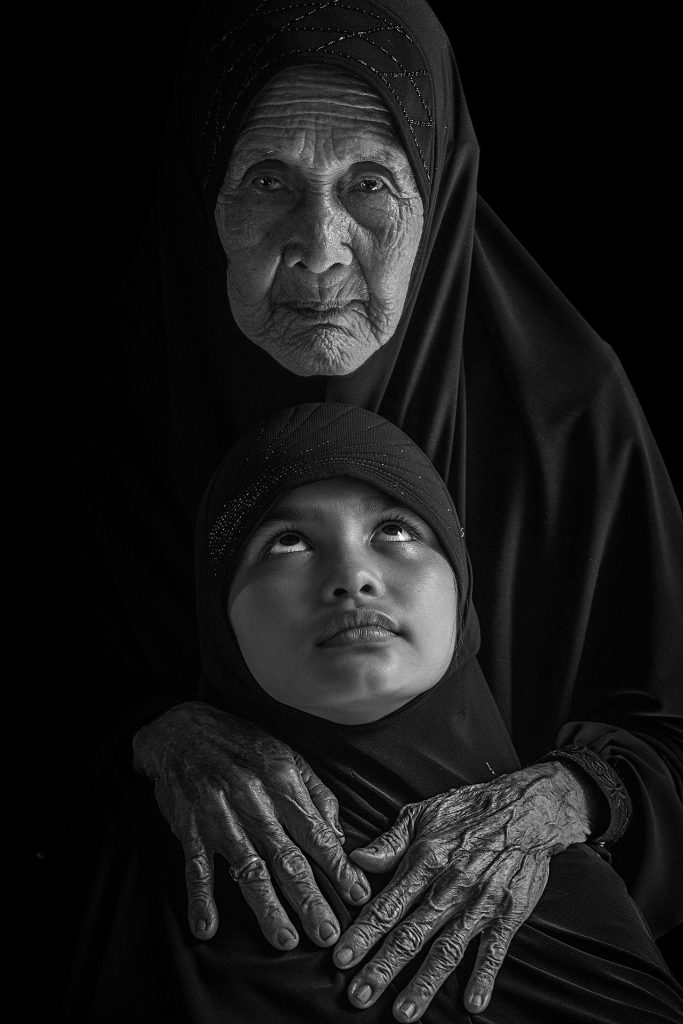
by Anastasia Chrysostom | Jan 16, 2020 | Uncategorized
by Nyambura Kihato, M.Ed, MA, LPC, CCTP
I once heard Oprah talk about how she deals with being a successful Black business woman in a white man’s world. She said she often walks into a meeting to find she is not just the only woman, she is the sole person of color. Some of the people she meets can be intimidating or even outright hostile.
In times like these, she calls to mind all the strong black women who came before her, like Harriet Tubman, Sojourner Truth, Maya Angelou. She reflects on the hardships they encountered and how they impacted the world in such powerful ways while remaining true to themselves.
Oprah describes how she invites these powerful women to walk into the boardroom with with her, to sit next to her at the table, to help her respond to the environment and the people with authenticity, empathy, and conviction, and to remind her to be true to herself. This helps her find her own power, especially in unfriendly environments.
Courage to be you
Who gives you strength and courage to show up and be yourself? Who do you walk with into that work meeting where you are giving an important presentation? Who sits at the negotiating table with you as you ask for that raise you know you deserve?

Your ancestors? Your grandmother? A teacher or mentor? What messages are they sharing with you as you engage with others? How does it feel to know that they have overcome insurmountable odds and are here to help you do the same, to support you, to be your guide and witness during the interaction?
Some of my favorite people to walk into such situations with are Oprah, Wangari Maathai, Nelson Mandela, Barack Obama, Toni Morrison, Maya Angelou. To me, these incredible people represent the essence of humanity, creativity, authenticity, and courage. As I reflect on who they are, I remember who I am. I feel their power and empathy surge through me; it infuses me with the courage to show up authentically and deal with whatever the moment brings.
Nyambura Kihato, M.Ed, MA, LPC, CCTP I earned my Bachelor of Education in German Language and Literature from Kenyatta University in Kenya. I studied German further at the Goethe-Institut Nairobi, and in Luebeck, Germany. I went to graduate school at the University of Hull, UK, where I obtained a Master of Education in Counseling and Child Development and Learning. I taught for several years in Kenya before coming to the United States to study at the California School of Professional Psychology, San Diego, graduating with an M.A. in Counseling Psychology. I am a Licensed Professional Counselor (LPC) in the state of Georgia, trained in EMDR (Eye Movement Desensitization and Reprocessing), and am a Certified Clinical Trauma Professional (CCTP). I currently serve on the board of the Jung Society of Atlanta and am training to become a Jungian analyst.
Follow us on Facebook, Instagram and Pinterest to see more advice from our therapists!
Facebook Instagram Pinterest
A thin band that contains oestrogen and progestogen which work together to prevent ovulation, preventing sperm from getting through. Rod, Bar, Contraceptive Implant.

by Anastasia Chrysostom | Jan 1, 2020 | Child Therapy
by Madison Longchamp, MS, APC
Most enjoy being in control sometimes. Some of us feel very uncomfortable when we are not in control.
Our relationship with control is a major contributor to our ability to maintain relationships, deal with emotions, and thrive day to day.
The same goes for our children.
Many of the unhealthy dynamics families create center around power – whether the child has too much and the parent feels they have too little or vice versa. Feeling in control is a good feeling and is important for everyone, but it is not always something, ironically, that we often feel in control of. Imbalances in parent’s and children’s desire for power can stem from different sources and may need to be explored further. Understanding locus of control can go a long way in aiding healing.
Below is an activity I often do with kiddos to exhibit the impact of control in our lives and to begin a conversation about their relationship with control:

The inner circle was colored with my dominant hand. As you can see, it is a lot neater than the outer circle. The outer circle was colored with my non-dominant hand. It was a lot more frustrating! I had a lot more control while coloring the inner circle than while coloring the outer.
Try this activity for yourself out and see what you might discover about your own relationship with control.
After we discuss the activity itself, we discuss what the activity represents. When we focus on what we control (our inner circle, inner locus of control), we feel less frustrated and develop a sense of mastery and self-confidence. When we focus on things we cannot control (our outer circle, outer locus of control) we can become very frustrated and discouraged. What we find in our inner circle is only our own choices and responses. In our outer circle is, well, everything else.
Not only does having an inner locus of control help when our children (and us too!) are frustrated, but it can also help develop a more solid sense of self-worth.
Having an inner locus of control means we focus on our own part in our successes and our losses.
This leads to increased self-esteem and a focus on growth rather than discouragement. So, next time you are feeling things are out of control, focus on what you can control in that moment and help your child do the same. The next time your child does something well like gets a good grade and blows it off as “good luck” or “by chance,” help them develop their own inner locus of control by offering that they worked hard for that good grade and can do so again.
Madison Longchamp, MS, APC I am a Licensed Associate Professional Counselor. I received my Bachelor’s of Science degree in Psychology from The University of Alabama and my Master’s of Science degree in Psychology and Clinical Counseling from Brenau University. I have research experience in child development and education and experience providing and interpreting psychological and cognitive assessments.
Learn more about Madison and how she can help your child here!
Follow us on Facebook, Instagram and Pinterest to see more advice from our therapists!
Facebook InstagramPinterest
All contraceptive pills increase the risk of blood clots, a potential side effect that is not discussed nearly enough. If any woman has an existing blood clotting disorder such as deep vein thrombosis, thrombophlebitis, heart attack, cerebrovascular disease such as stroke, coronary artery disease, or pulmonary embolism , it is strongly advised they do not take this medication.







Recent Comments